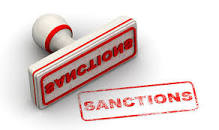Business salutes SADC on sanctions stance
Share

Harare, (New Ziana) – Local industry on Monday came out in full support of the anti-sanctions stance adopted by the Southern African Development Community (SADC),and said it believed an invigorated, region-wide lobby could be a key turning point in Zimbabwe’s two decade long fight against the illegal western penalties.
In the boldest signal yet of its solidarity with Zimbabwe, SADC at its annual summit held in Tanzania last month declared October 25 a day all member states will organise activities to lobby the world for the removal of illegal economic sanctions imposed on the country by the United States and the European Union (EU).
The illegal penalties were imposed on Harare as punishment for implementing agrarian reforms which were meant to correct colonial land ownership imbalances which favoured the minority white population.
The sanctions, among other things, restrict Zimbabwe’s trade with the outside world, and limit its access to international capital markets.
They also prohibit targeted senior government officials from travelling to the U.S and the EU, as well as American companies, for example, from conducting business with or on behalf of targeted Zimbabwean companies.
The embargo is estimated to have cost the country at least US$42 billion in economic damages over the past two decades, and is the main cause of economic challenges the country is currently facing.
Confederation of Zimbabwe Industries (CZI) top official Sifelani Jabangwe said the sanctions were illegal and should be removed as they had suffocated the country’s economy for a long time.
“The sanctions must go because they are hurting business, they are hurting the growth of the country and they are hurting the people,” he told New Ziana in an interview.
The CZI top official said local companies have over the years failed to access cheap loans from international financial institutions because of the sanctions.
In some cases, Jabangwe said local companies have had to move money via clandestine conduits to circumvent the US Office of Foreign Assets Control (OFAC), for example, which forbids American companies from conducting business with Zimbabwean firms.
Over the years, OFAC has slapped companies and banks with millions in fines for conducting business with or on behalf of sanctioned countries, firms or individuals.
“We are still paying premium costs (to conduct foreign business), investors are also shying away from Zimbabwe and we have got correspondent banks that have stopped doing business with Zimbabwe as a way to de-risk,” he said.
“Essentially it (the sanctions regime) is affecting Zimbabwe’s ability to do business and it is affecting Zimbabwe’s contribution to the development of Sub Saharan Africa.”
In declaring the anti-sanctions solidarity day, SADC noted that the sanctions were illegal, unjust and constricting Zimbabwe’s economic development and that of the regional bloc as a whole.
Sadc’s solidarity with Zimbabwe over the sanctions was one of the main themes at the summit, and will increase pressure on both the EU and the US, to rescind the measures.
In May, the EU and the United States both renewed the sanctions for another year.
The renewal was despite positive strides President Emmerson Mnangagwa’s Second Republic has made in the country, including sweeping political and economic reforms since coming into office in November 2017.
For example, President Mnangagwa constituted the Inter-Ministerial Committee to lead political, electoral and legislative reforms in March this year as part of wider reforms being pursued.
He has also initiated a political dialogue framework with opposition parties as part of efforts to pacify the polarised political environment.
The renewal is also inspite of Zimbabwe’s re-engagement and engagement initiative, under which Harare has committed to mending relations with hostile countries while cementing ties with friendly nations.
New Ziana









